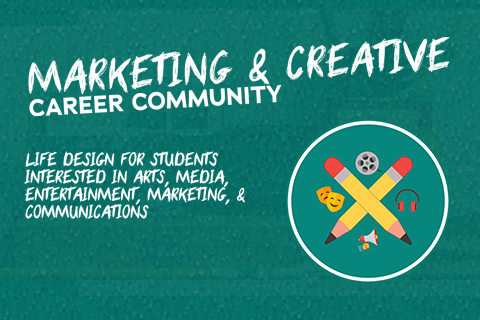Explore a career in music and arts teaching
A potential career opportunity for many artists is to teach their craft. Whether it’s at a formal institution or a private studio, a class or individual instruction, young students to lifelong learners, there are a breadth and depth of opportunities to teaching an artform. Some use these opportunities to supplement their career, while others focus primarily on pursuing a teaching career.
Places where arts and creative topics are taught include:
- Public/private K-12 schools
- Higher education institutions and conservatories
- Summer camps and festivals
- Community schools, museums, and centers
- After school programs and workshops (YMCA, Libraries)
- Private studios and lessons
Employment Opportunities
These educational opportunities offer a variety of position types and time frames – full-time, part-time and seasonal. K-12 public/private and universities follow the typical school schedule, with some events occurring on the evenings or weekends and observing holiday/summer breaks. These positions can vary from full-time to part-time, depending on the needs of the school and the number of students registered for a course (i.e. an adjunct professor teaching lessons will be paid purely on the number of individual students in their studio).
On the flip side, teaching at community schools, community programs, and private studios usually means working purely in the evening and weekends, when students are available to take lessons, classes, and workshops. Depending on the size of the organization and number of students, these positions can be full-time or part-time.
-
Successful candidates have:
- Proficient to advanced creative skills, ability, and experience in the appropriate field
- Interest and experience educating others in the artistic focus
- Flexible teaching styles and abilities based on a variety of levels and ages
- Knowledge of appropriate resources and materials
- Organization skills and ability to plan student objectives, lesson plans, and activities
- Ability to articulate/demonstrate how to do something, assess a student’s ability, and verbalize suggestions on how to improve
-
Other specific qualifications include:
- Public & Private Schools
- State certification in the appropriate area
- Eventually a Master’s degree in the field
- Experience as a student teacher
- Higher Education Institutions
- Graduate degree in the field (Master’s or possibly Doctorate)
- Experience in the specific arts field
- Experience teaching college-level students
- Experience presenting in master classes, workshops, or at conferences
- In many cases, continuing to practice the art
- Private Studios & Lessons
- Portfolio of materials to demonstrate to potential students your artistic abilities
- Basic knowledge of self-employment business structures, insurance requirements, and appropriate rates
- Administrative skills: budgeting, organization, marketing, and communication
Of all of the positions listed below, only one category requires getting a degree in education and certification – Public/Private K-12 schools. Higher education institutes require graduate degrees in the related arts field, but not an education degree.
- Public & Private Schools
-
Hiring cycle:
- Summer Camp / Festival Cycle – Posted on individual websites, hiring from December – April of year prior
- Public Schools / Higher Education Institutions – Application process for full-time positions often open in the fall a year prior, however sometimes you will find openings in the spring.















